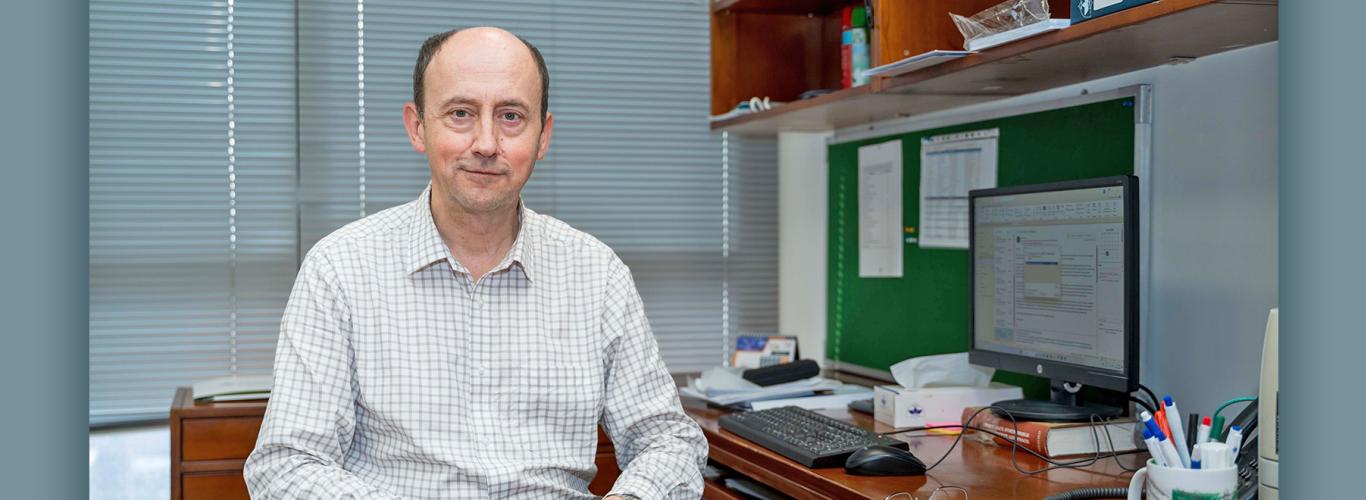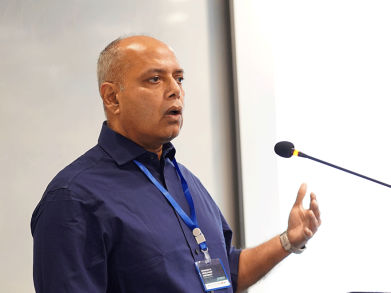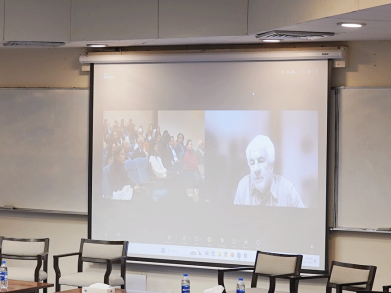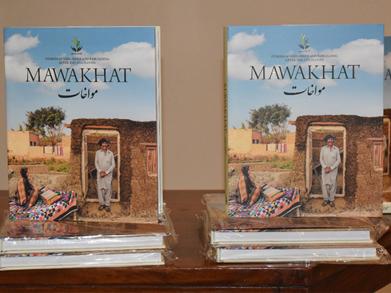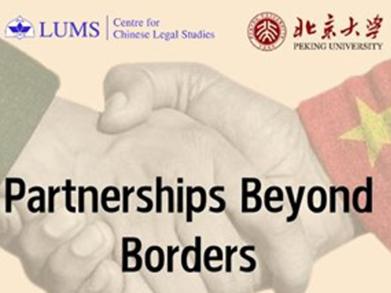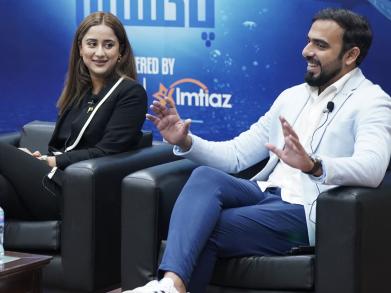In Conversation with Dr. Walther Schwarzacher, Dean SBASSE: A Physicist who Advises Students to Think Strategically
Dr. Walther Schwarzacher has been appointed as the Dean of the Syed Babar Ali School of Science and Engineering (SBASSE) for a period of five years. Alongside that, he will also serve as Professor of Physics at the School. He succeeds Dr. Muhammad Sabieh Anwar who has served as Dean, SBASSE since February 2020.
Prior to joining LUMS, he has served in senior academic roles in the UK. Dr. Schwarzacher has been Professor of Physics at the University of Bristol since 2005. He also held the prestigious Chair of the Electrodeposition Division of the Electrochemical Society from 2005 to 2007 and also been awarded the School of Physics Teaching Award thrice. Dr. Schwarzacher is widely published and has mentored more than thirty PhD students. His research interests span a variety of topics in electrochemistry, nanoscale physis, materials physics, and ice nucleation.
Dr. Schwarzacher, a firm proponent of interdisciplinary research, also has an established career in building international networks in research and learning. His experience spans over multiple continents, where he has built learning groups of research students through an international mentoring programme that he designed and developed at Bristol. For this, he received the University Education Award. In his role as the Graduate Dean at the Bristol School of Physics, he has been a major proponent of student welfare and the growth of new research opportunities for graduate students. He has also served as a member of Bristol University's Senate.
We talked to Dr. Schwarzacher about his career, his initiative at Bristol University, and his vision for SBASSE and its students. Here is what he had to say.
Going back to the very beginning, what was it that first drew you to the world of science and more particularly Physics?
My mother, my father and my grandfather were all scientists, so I grew up in an environment where science was respected and valued. As a child, I wanted to be a pilot, then a doctor or lawyer, but when I studied Physics at school, I was hooked by its unique combination of precision and elegance. I also like the machines that experimental physicists get to work (or play) with. For example, constructing an ultrahigh vacuum system during my PhD by bolting bits of stainless steel together was Lego for adults!
As the new Dean, what is your vision for the Syed Babar Ali School of Science and Engineering?
The school must be a place where both undergraduate and graduate students gain an outstanding education in science, engineering and beyond. When they leave, students should have the inspiration and at least some of the tools they need to solve key problems of society. I also want students to enjoy their time at SBASSE, and for it to be a supportive and friendly place for staff and faculty to work and do outstanding fundamental and applied research.
How do you plan to foster international research and learning networks at SBASSE?
Faculty, especially younger faculty, need to develop their contacts to build international research networks. To do this, they need support for research visits to leading international laboratories. The outstanding network of LUMS Alumni overseas will also be key to developing international collaborations in both research and learning.
Tell us about the international mentoring programme at Bristol that you developed.
The international mentoring programme involves Bristol Mathematics and Physics undergraduates mentoring groups of HSSC or A-level students in Pakistan over the internet. Groups discuss material on the syllabus in greater depth than is possible at school, but they also cover topics that go well beyond the syllabus. The aim is to inspire. Bristol students gain credit hours and teaching experience. Pakistani students gain insight into what they are studying, and both groups learn about life in each other’s country.
What changes do you plan to bring to the student experience at your School?
Wait and see!
What is the most important piece of advice that you have been given, and would like to pass on to current students, about navigating the field of science?
Think strategically, not just tactically. Someone who thinks tactically can win battles. Someone who thinks strategically can win wars. What this means for an undergraduate student is that it’s not all about passing the next exam, but rather developing a portfolio of skills that will help you with whatever you ultimately want to do in later life. For a graduate student doing research, it would mean focusing on the bigger picture. Why is what you are doing interesting or worthwhile? If you decide to stay in research, what are the problems you think you might be addressing in 5-10 years’ time?

